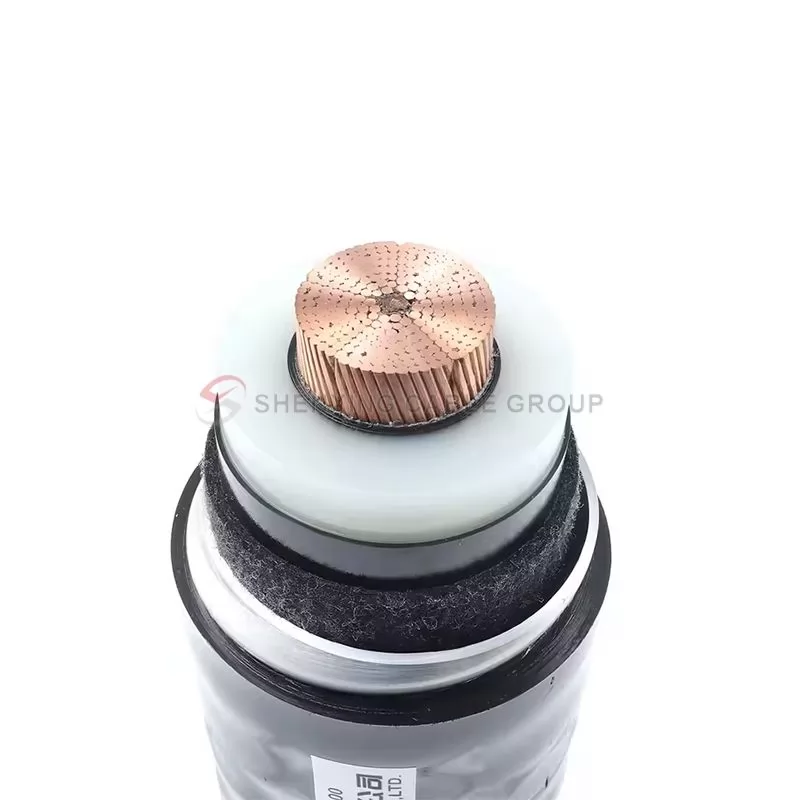+86 151 2718 0862
+86 151 2718 0862

A large-scale wire and cable group integrating manufacturing, sales, design, and R&D.
INQUIRY NOWNews
Welcome to the news section of Shenxing Cable Group! Here we will provide you with the latest industry trends, technology sharing, and product upgrades and innovations of Shenxing Cable, helping global customers connect to the world safely and efficiently.
March 05, 2025
Share:
The key difference between a 4mm and a 6mm solar cable is the cable's current carrying capacity, with a 6mm cable being able to handle a larger current due to its larger cross-sectional area, making it suitable for larger solar systems or longer cable runs compared to a 4mm cable, which is usually sufficient for smaller installations; essentially, "6mm" refers to the cross-sectional area of the cable, meaning it can carry more electricity than a 4mm cable.
In the solar power industry, selecting the right cable size is crucial to ensuring the efficiency, safety, and longevity of a photovoltaic (PV) system. Among the most commonly used solar cables, 4mm and 6mm cables are widely preferred for residential and commercial solar installations. However, many procurement professionals and project managers often struggle to determine which cable size is best suited for their needs.
This article, written from a manufacturer’s perspective, will provide an in-depth comparison between 4mm and 6mm solar cables, including their technical specifications, applications, advantages, and cost considerations. By understanding these factors, you can make an informed purchasing decision that maximizes efficiency and cost-effectiveness.

Solar cables are specially designed electrical wires used to connect photovoltaic panels, inverters, and other components within a solar power system. Unlike conventional electrical cables, solar cables are manufactured with UV-resistant, weatherproof, and flame-retardant materials to withstand harsh outdoor environments.
When choosing a solar cable, two primary factors must be considered:
Current Carrying Capacity – Determines how much electrical current the cable can safely transmit.
Voltage Drop – The amount of voltage lost as electricity travels through the cable over a certain distance.
Both of these factors are directly influenced by the cable’s cross-sectional area, making the difference between 4mm and 6mm solar cables significant.
| Feature | 4mm Solar Cable | 6mm Solar Cable |
|---|---|---|
| Cross-sectional Area | 4mm² | 6mm² |
| Maximum Current Carrying Capacity | ~25-30A | ~35-40A |
| Typical Voltage Drop per Meter | Higher than 6mm² | Lower than 4mm² |
| Application Scope | Small to medium residential solar systems | Large residential & commercial solar systems |
| Cost | More cost-effective | Higher initial cost but reduces energy loss |
1. Current Carrying Capacity
One of the main differences between 4mm and 6mm solar cables is their ability to handle electrical current. A 4mm solar cable can typically handle around 25-30A, while a 6mm solar cable can handle approximately 35-40A. If your solar system requires higher current transmission, using a 6mm cable is advisable to prevent overheating and energy loss.
2. Voltage Drop Considerations
Voltage drop occurs when electricity travels over a long distance, causing energy loss. A higher cross-sectional area (like that of a 6mm cable) reduces resistance, minimizing voltage drop and improving overall system efficiency. If your solar panels are installed far from the inverter or battery storage, using a 6mm cable can significantly enhance performance.
3. Application Scenarios
4mm Solar Cable: Ideal for small to medium residential solar installations where the distance between components is shorter and the energy demand is lower.
6mm Solar Cable: More suitable for larger residential or commercial solar systems, especially in cases where the panels are installed further away from the inverter.
4. Cost Efficiency
From a procurement standpoint, cost-effectiveness plays a significant role. A 4mm solar cable is generally more affordable and sufficient for many standard applications. However, the slightly higher cost of a 6mm cable can be justified in long-term scenarios due to reduced energy loss and improved system performance.
According to industry data, the global demand for solar cables is expected to grow at a CAGR of 10.5% from 2023 to 2030, driven by increasing solar adoption worldwide. As more commercial and utility-scale projects emerge, the demand for larger cross-sectional cables like 6mm and beyond is increasing.
For procurement professionals, sourcing high-quality, certified solar cables from reputable manufacturers ensures compliance with international safety standards (e.g., TÜV, IEC 62930) and guarantees durability in harsh environments.
If you are installing a small to medium residential system, a 4mm solar cable is a cost-effective and efficient choice.
If your project involves larger solar systems with longer distances, a 6mm solar cable is a better investment due to reduced energy loss and higher current capacity.
As a leading solar cable manufacturer, we provide premium-quality solar cables that meet industry standards, ensuring maximum efficiency and reliability for your solar projects. Contact us today to discuss your specific cable requirements and receive expert guidance tailored to your project needs.
Hot Products
Copper Cores, XLPE Insulated, PVC Sheathed, Control Cable
Shenxing KYJV cross-linked power control cable is an advanced integrated intelligent high-voltage cable designed for real-time monitoring of cable operating parameters.
Read More
Copper Core PVC Insulated Wire
A global BV cable supplier offers a full variety of building cable from our stock and tailored XLPE cables as well.
Read More
Copper Core PVC Insulated PVC Sheathed Power Cable
BVV/BVVB cable is a high-quality power transmission cable widely used in residential, commercial and industrial environments.
Read More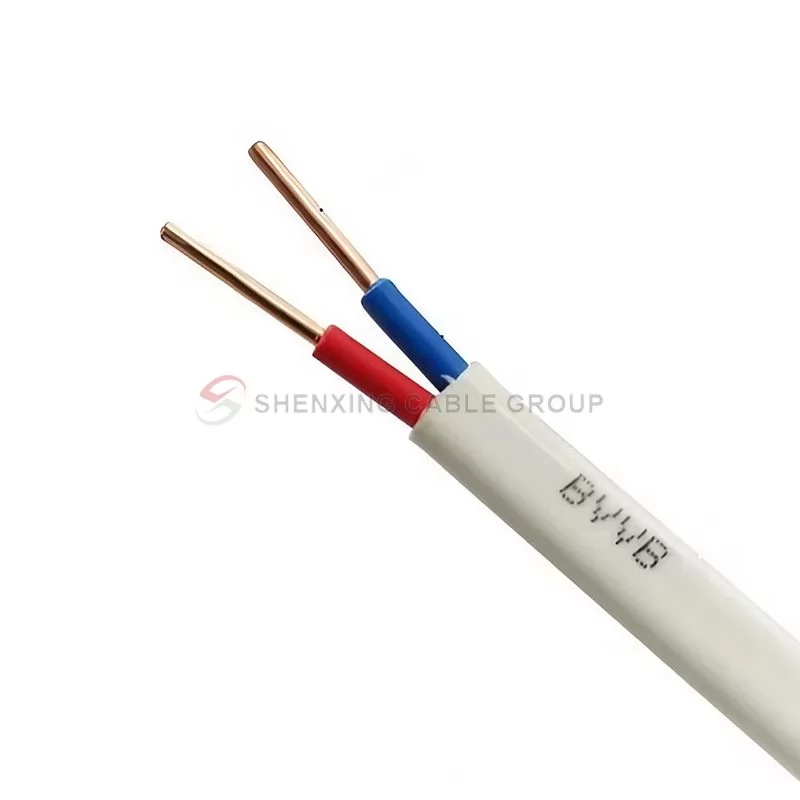
RVB-Copper Core Flat Sheathless Flexible Cable
Welcome to learn about Shenxing Cable Group's RVV/RVB cable (also known as flexible cable), which is a high-performance cable designed for a variety of low-voltage electrical applications. The cable consists of multiple copper conductors and a PVC outer sheath and is widely used in low-voltage electrical systems.
Read More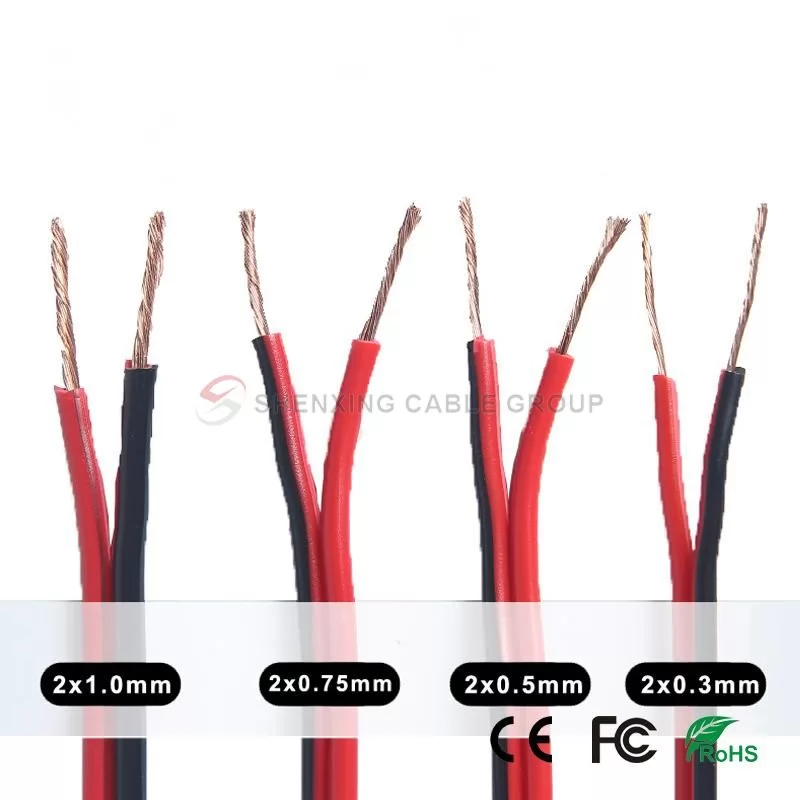
Copper Core PVC Insulated Connecting Soft Wire and Cable
Welcome to learn about RV cables from Shenxing Cable Group. This high-quality cable is designed for low-voltage electrical applications. By using high-quality materials and exquisite manufacturing technology, RV cables ensure that you enjoy reliable power supply and efficient power transmission in multiple fields, providing you with ideal solutions.
Read More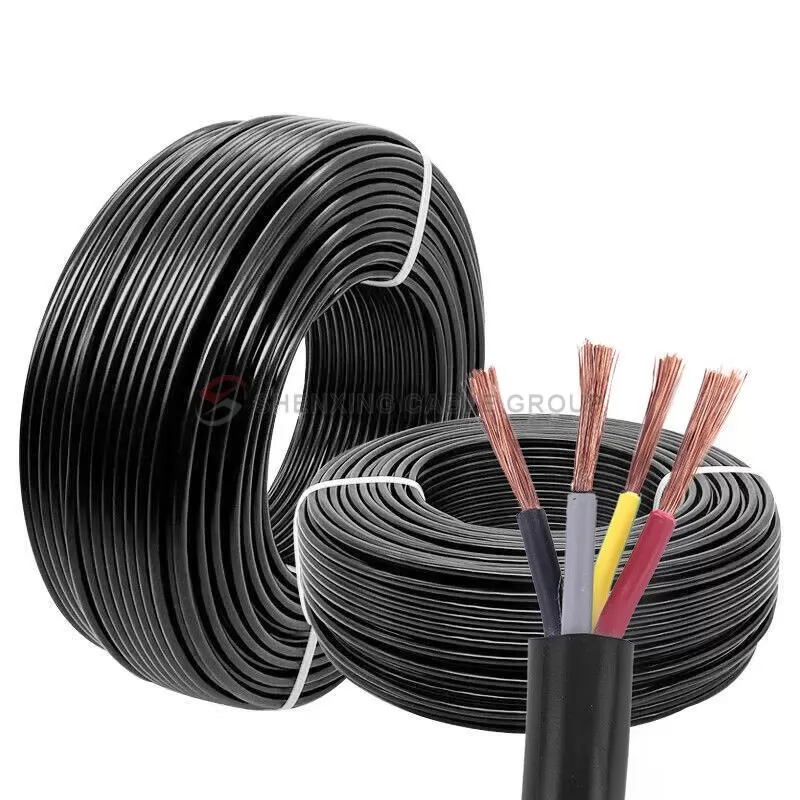
RVV cable is suitable for a variety of application scenarios, including home power wiring, industrial equipment connections, office electrical systems, etc. Whether it is used for power transmission, electrical equipment connection, or use in harsh environments, RVV cables can provide stable, efficient, and safe power support.
Read More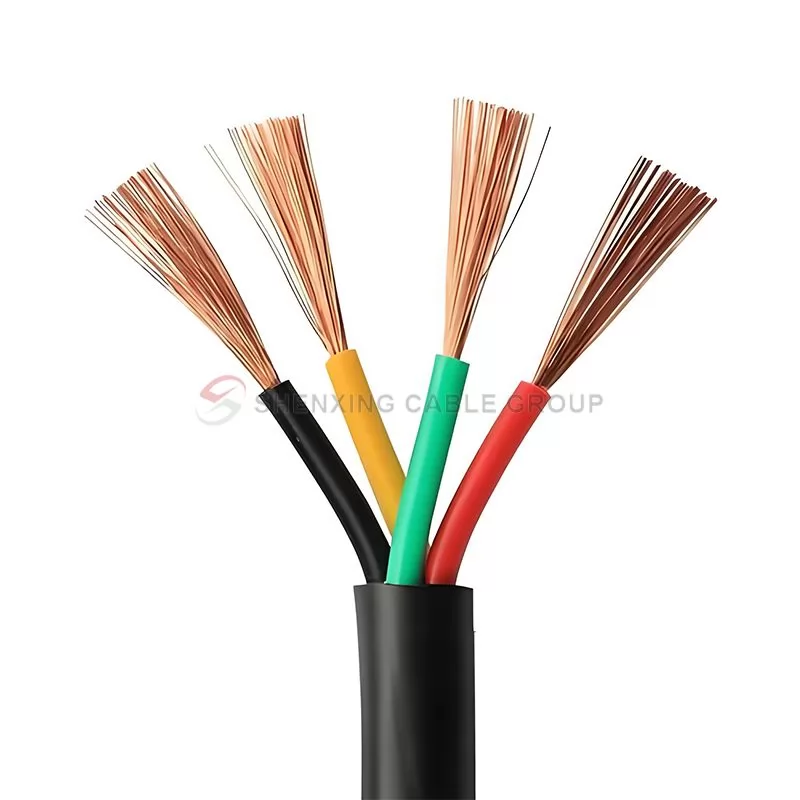
Copper Conductor, PVC Insulated and Sheathed, Steel-tape Armoured Control Cable
RVS twisted pair flexible cable provided by Shenxing Cable Group is a 300/500V voltage level cable consisting of two insulated conductors twisted around each other. We produce many types of twisted pair cables in strict accordance with the Chinese national standard GB/T 8734.3. RVS twisted pair shielded cable consists of two independent insulated copper conductors that are twisted around each other and arranged in parallel.
Read More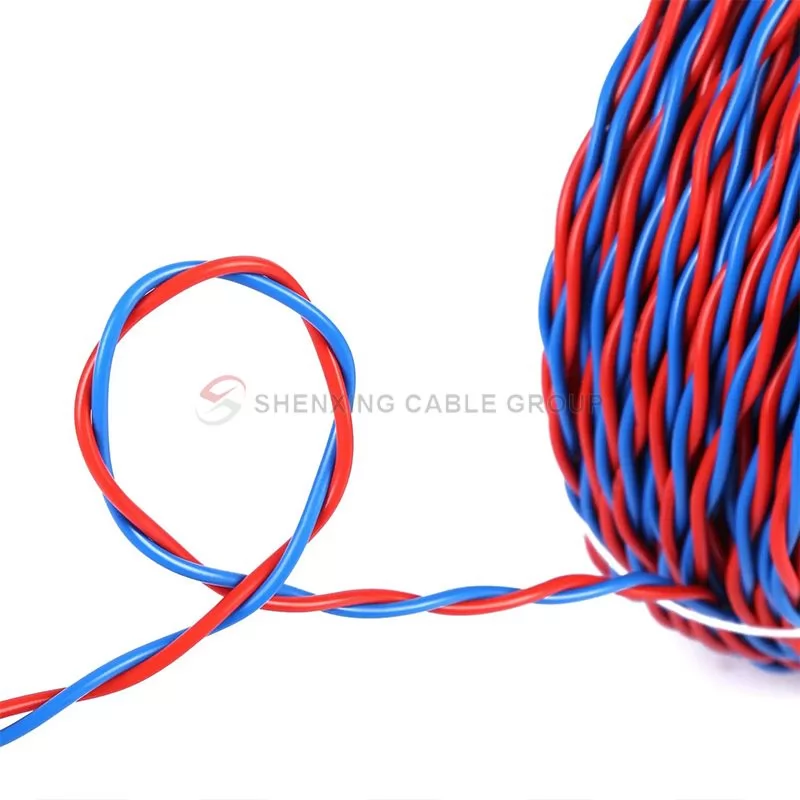
TÜV Solar PV Cable TÜV-H1Z2Z2-K
The SHENXING solar PV H1Z2Z2-K cable, which is TÜV certified according to EN 50618 and AENOR, is suitable for both fixed and mobile solar installations (solar farms, rooftop solar installations and floating plants). It is a highly flexible cable compatible with all major connectors and specially designed for the connection of photovoltaic panels. This versatile single-conductor cable is designed to meet the varying needs of the solar industry. Suitable for wet, damp and humid locations.
Read More
Shenxing Photovoltaic Cable PV1-F is a high-performance cable designed for solar photovoltaic systems. It has excellent high temperature resistance, extrusion resistance, environmental cracking resistance and other characteristics, ensuring the long-term stable operation of photovoltaic power generation systems. As a leading global photovoltaic cable manufacturer and supplier, Shenxing Cable is committed to providing high-quality cable solutions to meet the needs of various photovoltaic installa
Read More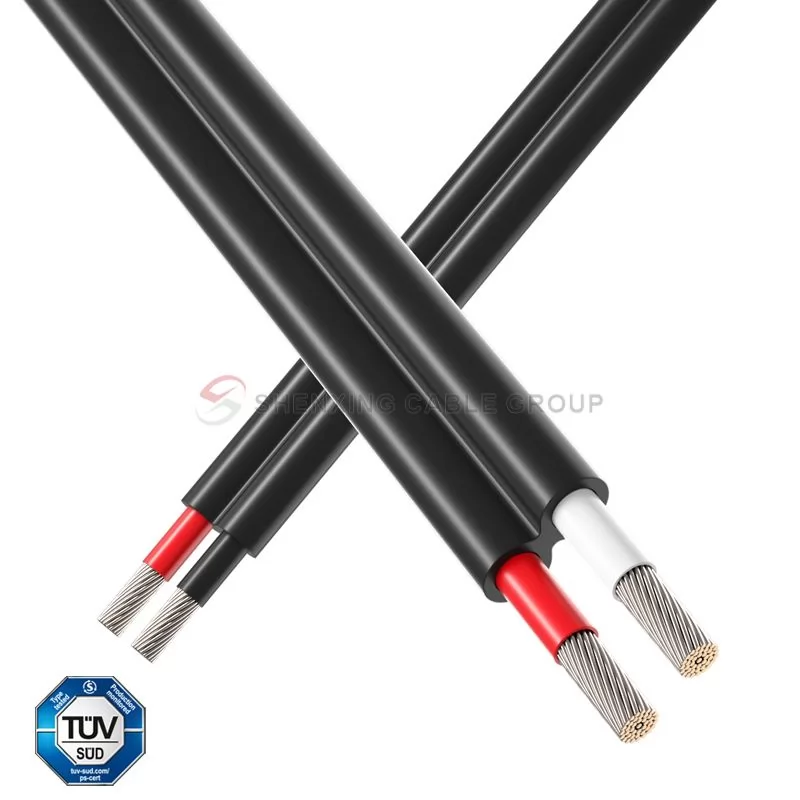
110kv Copper Core XLPE Insulated Corrugated Aluminum Sheathed Power Cable
YJLW high voltage cross-linked polyethylene cable is a high-quality cable product for high voltage power transmission. It adopts high-quality copper core, aluminum core and cross-linked polyethylene insulation materials to ensure the high efficiency and reliability of power transmission.
Read More